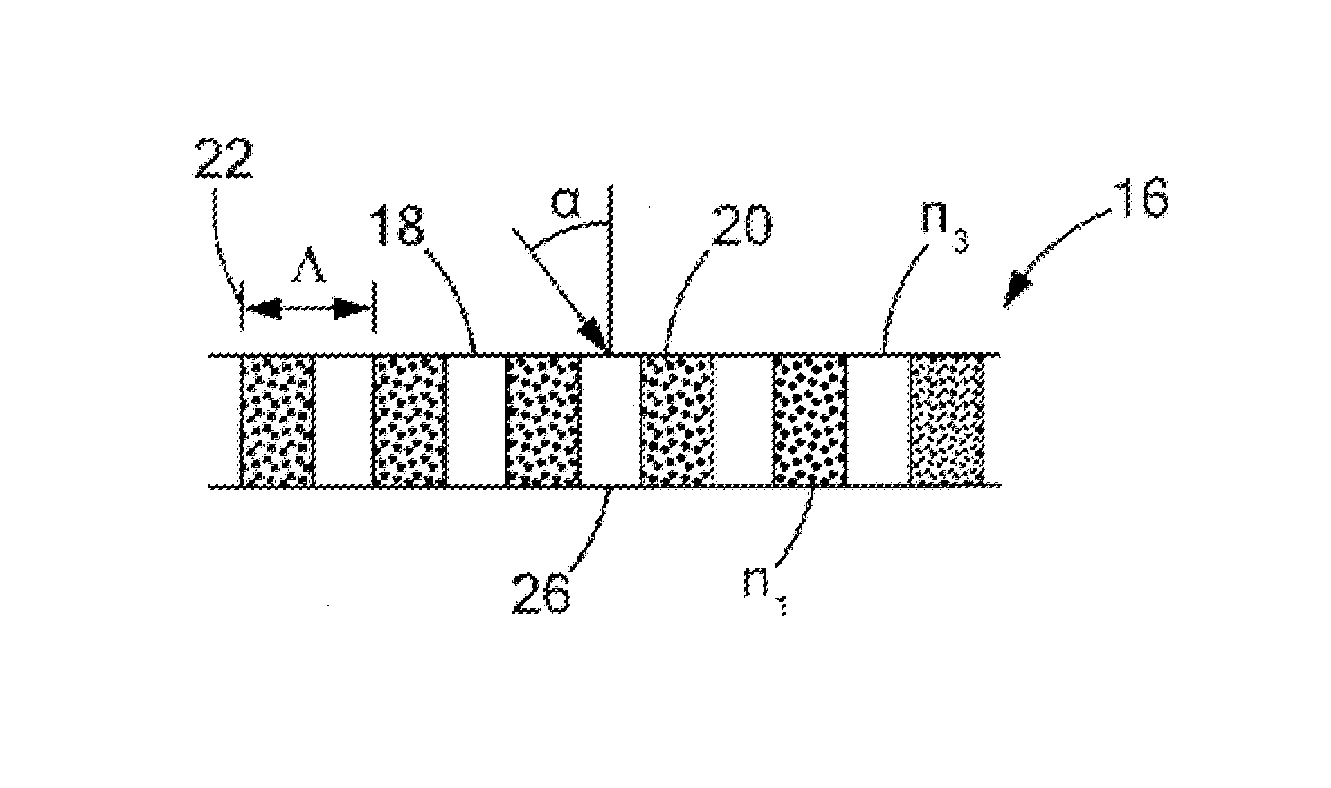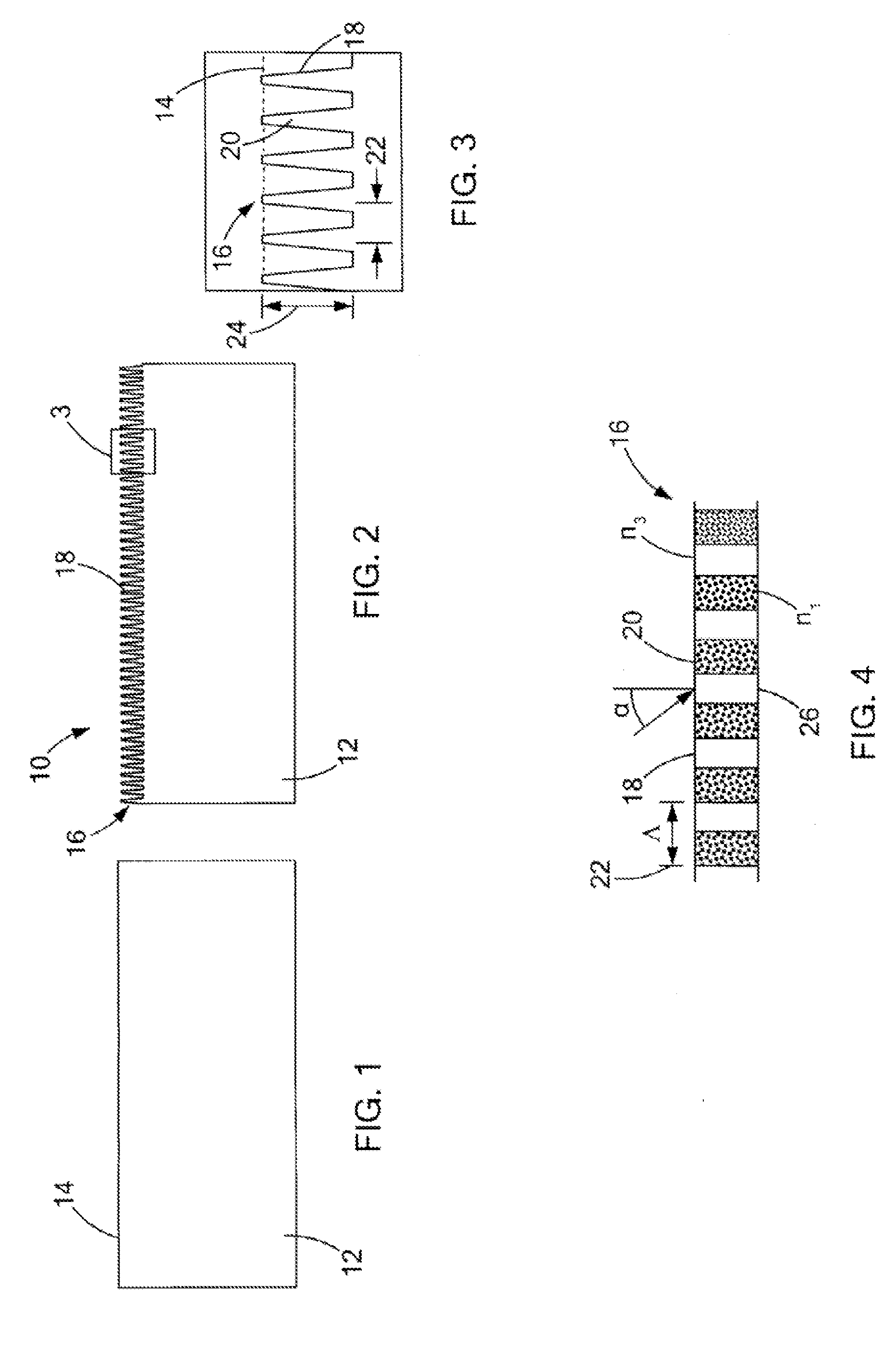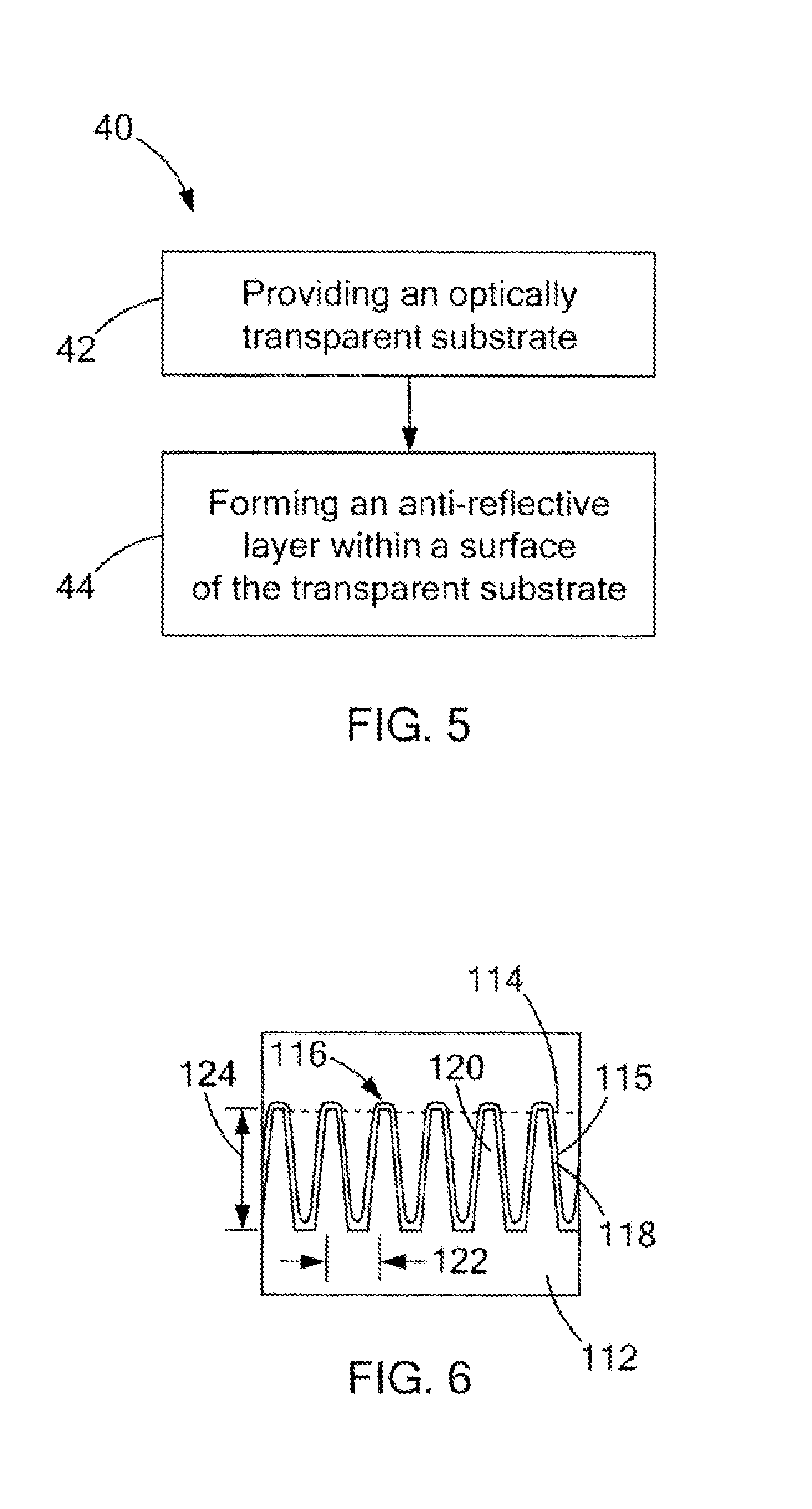Method of fabricating transparent Anti-reflective article
a technology of anti-reflection and transparent objects, which is applied in the direction of anti-reflection coatings, photomechanical devices, instruments, etc., can solve the problems of hazy reflection image, reduced light intensity, and difficult viewing of transparent electronic display screens made of glass or plastic, so as to minimize light diffraction and random scattering therethrough, and similar shape and size
- Summary
- Abstract
- Description
- Claims
- Application Information
AI Technical Summary
Benefits of technology
Problems solved by technology
Method used
Image
Examples
Embodiment Construction
[0016]The present invention generally provides an anti-reflective transparent article. The anti-reflective transparent article may be used in display screens for computer and television monitors, cell phones, cameras, and pocket PCs. The anti-reflective transparent article may also be used in optical sensors and solar cells. In one embodiment, the article comprises a transparent substrate having an anti-reflective layer including a subwavelength nano-structured surface having a plurality of protuberances. The subwavelength nano-structured surface is preferably formed through use of a nanosphere lithography technique. The subwavelength nano-structured surface lowers the refractive index of the transparent substrate and thus reduces the reflection of ambient light.
[0017]FIG. 1 illustrates a transparent substrate 12 having a first surface 14 and a refractive index n1. FIG. 2 illustrates an anti-reflective transparent article 10 in accordance with one embodiment of the present invention...
PUM
| Property | Measurement | Unit |
|---|---|---|
| distance | aaaaa | aaaaa |
| distance | aaaaa | aaaaa |
| distance | aaaaa | aaaaa |
Abstract
Description
Claims
Application Information
 Login to View More
Login to View More - R&D
- Intellectual Property
- Life Sciences
- Materials
- Tech Scout
- Unparalleled Data Quality
- Higher Quality Content
- 60% Fewer Hallucinations
Browse by: Latest US Patents, China's latest patents, Technical Efficacy Thesaurus, Application Domain, Technology Topic, Popular Technical Reports.
© 2025 PatSnap. All rights reserved.Legal|Privacy policy|Modern Slavery Act Transparency Statement|Sitemap|About US| Contact US: help@patsnap.com



